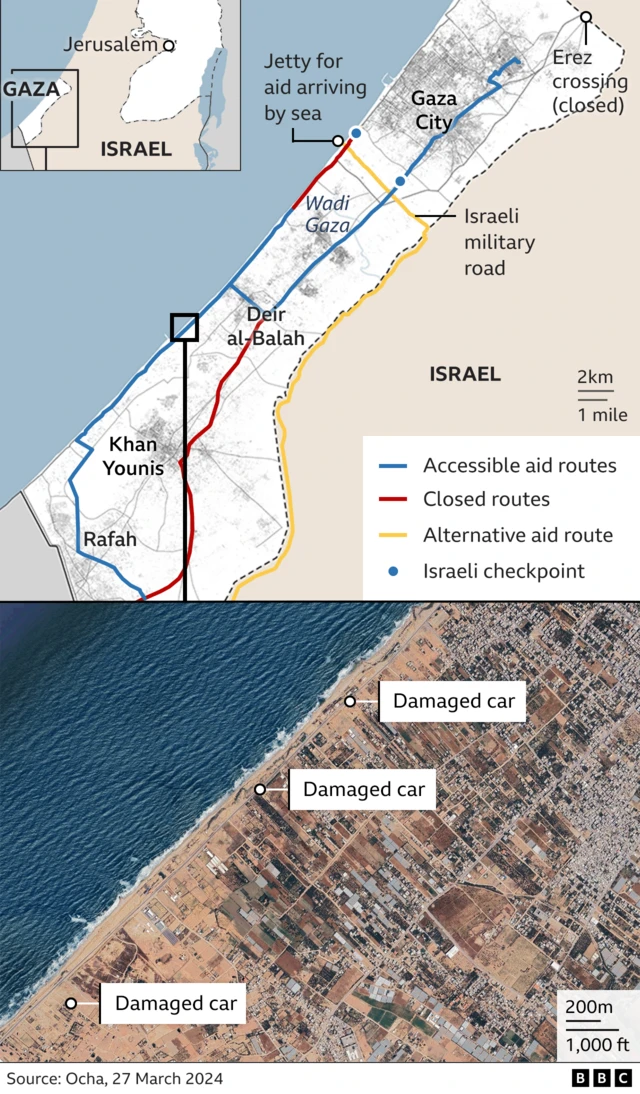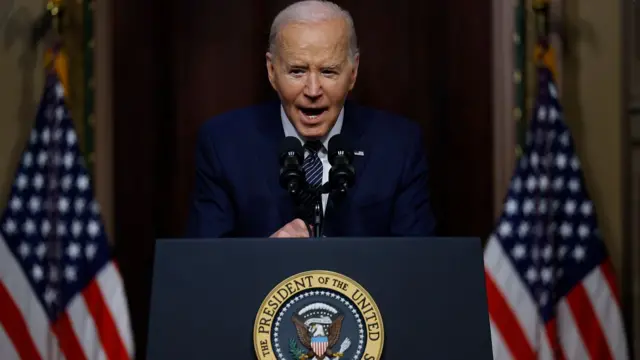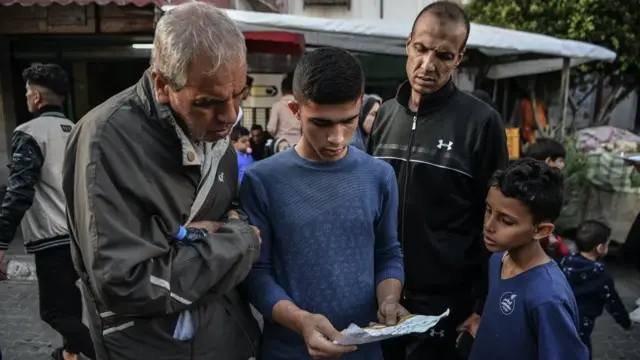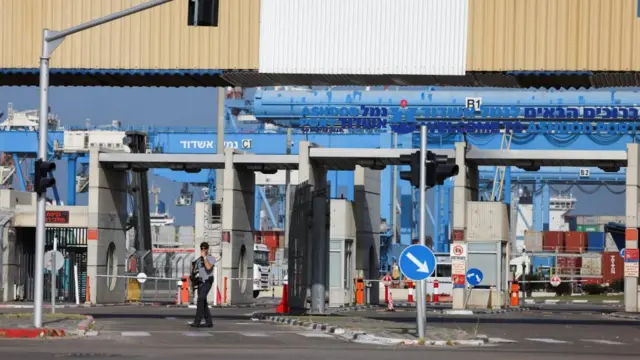
What we know about the deadly air convoy strike in Gazapublished at 08:23 BST 5 April 2024
BBC Verify has been studying images shared on social media of the aftermath of Monday's attack to try to piece together what we know about the incident that killed seven aid workers.
The World Central Kitchen (WCK) says the convoy had just dropped off more than 100 tonnes of food supplies at a warehouse in Deir al-Balah in central Gaza.
The vehicles, two of which were armoured, are around 2.5km (1.5 miles) apart, which suggests there was more than one strike.
WCK says the third car was a "soft-skin vehicle" - meaning not armoured. It was about 1.6km south of the second vehicle and 2.5km of the first.
"It was a direct hit. They tried to treat some of them and put them in another car in front. But they shelled the car," said a local resident, who said he had witnessed the strike.
Read more about BBC Verify's findings here.
 Image source, .
Image source, .




